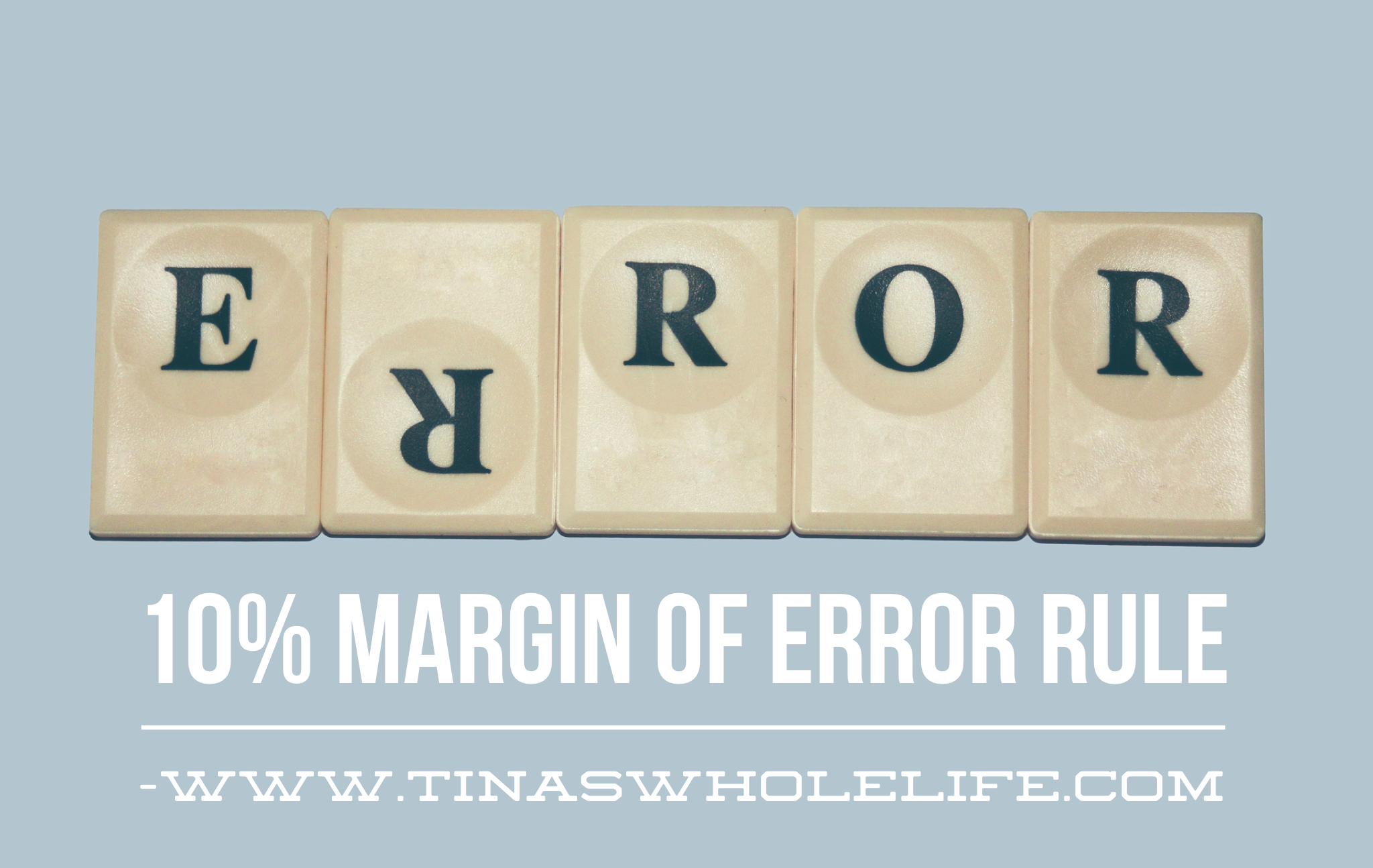The 10% Margin of Error Rule
The Ugly Stigma of Mistakes
Mistakes. Why is this such a dirty word? Why is it so hard to admit that you made one? And when someone else makes one why do we judge them so harshly?
We live in a meme culture where truth and reality can be summed up on one or two sentences like “You must expect great things of yourself before you can do them” and “we are what we repeatedly do. Excellence then is not an act, but a habit”. Read any playbook for success on the market today and it will tell you that striving for excellence is key to succeeding. But what happens when that pursuit of excellence turns into a measuring stick by which we harshly criticize ourselves and others and that fuels perfectionism?
As a society we don’t talk enough about the value of failure and how it is an integral part of achieving excellence. We also don’t talk enough about the fact that no one is perfect (and never will be) and mistakes are unavoidable. But we do talk a LOT about how terrible it is that someone could mess something up. We believe that “the better man wins” and that seems to imply that those who come in second are failures. Failing has a highly negative stigma that no one wants to be associated with, so much so that sometimes we try against all odds to absolutely never, ever make a mistake. And when inevitably we do it can be almost impossible to recover from, leaving us with an overwhelming sense of misplaced shame.
Challenging Unrealistic Expectations in Business
In the business arena we tend to hold businesses to unrealistic performance standards of and place unhealthy expectations on employees that causes unnecessary and sometimes debilitating anxiety and stress in the workplace. Yes, striving for excellence in service is important - but expecting that excellence means nothing will ever go wrong is simply unrealistic and unfair.
In today's competitive market we can get sucked into the widely held belief that we have to outperform our competitors in order to succeed in business. While this is partially true it doesn't mean that we will never make mistakes or that we shouldn't make mistakes, but somehow that becomes the underlying message.
One of the fantastic benefits of owning your own business is that you get to develop your own workplace culture. As a business owner I decided that for my own health and the health of my team I wanted to challenge this unhealthy belief system and instead develop expectations that were both achievable and allowed us to maintain balance in the workplace. As a result we have created a much healthier work environment that gives us freedom to try new things and develop even higher standards of practice.
The 10% Margin of Error Rule
If we look at all other areas of our businesses we will discover that we already have margins of error in place. We know that we won’t sell 100% of our product. We know that 100% of the people we talk to will not become our clients, we know that our products don’t perform 100% of the time. So why do we expect that our people will?
In developing the different areas of our business we determine acceptable margins of error and adjust our targets accordingly. In reviewing what I deemed acceptable performance levels for my team I determined that with all of us regularly pursuing a standard of excellence I could live with a 10% margin of error. This margin still placed us in top brackets with our competition and was easily achievable by my amazing team. We deemed this the “10% Margin of Error" in our office. When those unavoidable mistakes come up and we sheepishly realize our failure we evaluate how to try and avoid this situation again and chalk this one up to the 10%. It isn’t something that comes up often because all of us are striving to do our best every day. But when it does happen we are able to learn and move on. There is no more taking the mistake home and mulling over it. No more feelings of shame and embarrassment that come with failure. No one is worried about keeping their job and further hindered from performing at a high level. Instead we evaluate, adjust for future occurrences and carry on.
Changing Our Minds & Our World
Wouldn’t this type of mindset shift be great where you work? How about at home? Or in friendships? This 10% Margin of Error Rule can work anywhere to reduce unhealthy expectations of ourselves and others and bring about balance and peace. It encourages us to be kinder to ourselves and others by producing grace instead of judgement and facilitates a much more positive environment to work and live in.
When we challenge the status quo we have the ability to make positive change in our immediate circles that could even spread and eventually be the new norm. I think this paradigm shift would be an amazing cultural change!
I'd love to hear how you challenge cultural norms by shifting your mindset at home or work. Share your ideas in the comments below!

